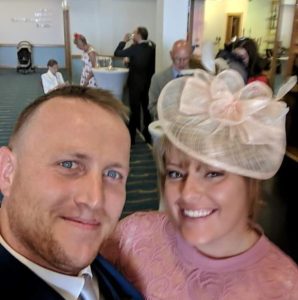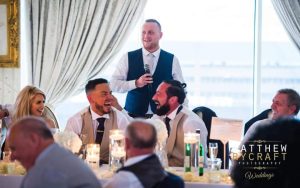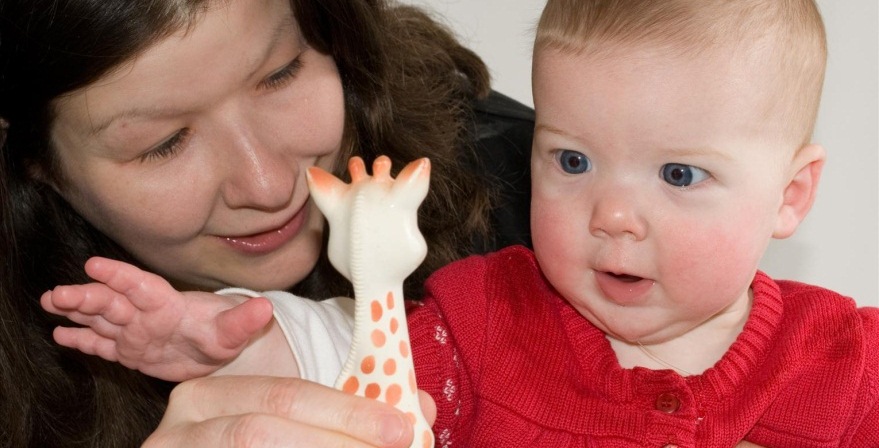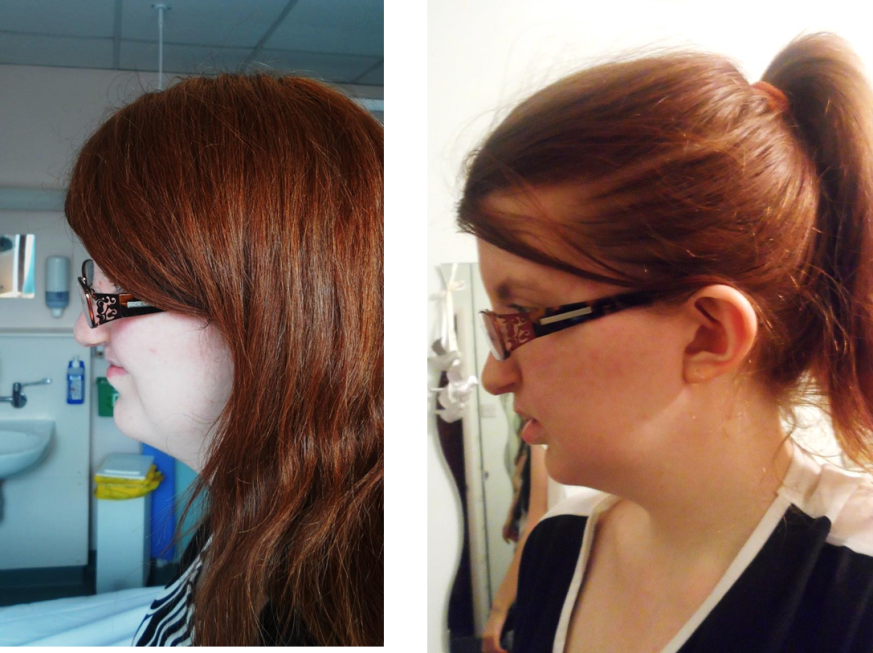
Barry’s Story
Barry Jones, an adult born with a bilateral cleft lip and palate, has shared his story with the CLAPA Community to inspire others to gain confidence in sharing theirs.

Barry’s Story
“I was born with both a bilateral cleft lip and a fairly significant cleft palate. I remember being oblivious to this (aside from the fact I was often having surgery) until I was at school.”
“Curious classmates would ask ‘Why do you talk like that?’ or ‘What happened to your face?’. I remember coming home in my first week at primary school, asking my mum why people would ask this?”
“You see, my mum had always treated me the same as my older two brothers and sister, neither of whom had a cleft.”
“Unbeknownst to me at the time (in the mid-80s) my mum had already had to fight to get me into mainstream school! Before I started, I was assessed for my development, and it was decided I would not be ‘suitable’ for mainstream primary. This was due to my speech at the time because of my cleft palate.”
“Yet my mum, who had an ear for what I was trying to say, knew that I was an intelligent, happy, social, and determined four-year-old. Who deserved the right to flourish in mainstream education.”
“My end-of-year reports in all years of primary school always backed this up. My ability, development, and curricular attainment were always above average. Admittedly with a side note of ‘Barry, at times, needs to remember that there is a time and a place for making his classmates laugh’.”
“By the age of six or seven, I had quickly learned that while I was a little different. Despite me forming a brilliant group of friends, there would always be the odd horrible kid who would say unnecessary.”
“By the age of six or seven, I had quickly learned that while I was a little different. Despite me forming a brilliant group of friends, there would always be the odd horrible kid who would say unnecessary. My most powerful weapon against these people, was humor, often as a way to get EVERYONE to like me.”
“I knew that if everyone liked me, nobody would say mean things, and if I made everyone laugh, everyone would like me. This was my way of social coping at the time, rightly or wrongly, that was my way.”
“Equally I remember certain words or sounds being much more difficult to say than others. I would learn to substitute many words for alternative words that were easier for me to say clearly. With hindsight, this must have further helped my ability to think quickly on my feet and form a strong vocabulary.”
“Aside from the odd exception, I remember my school years, both primary and secondary being full of fun, laughter, achievement, and friends. A couple of whom, at the age of 40, remain my best friends today.”

“Sometimes I wonder how different my school days would have been, if my mum had simply agreed that mainstream education was ‘too much for me’ when some naïve professional decided so. Based on how I spoke at age 3…with a hole in my palate. You try doing that mate! It’s not so easy you know!”
“I certainly credit my mum for pushing back like she did back then, for how things turned out.”
“I was now into my teen years, after facing multiple operations, from bone grafts to ensure I had a decent set of teeth, to palate ops. By the time I left school, with a great set of friends, decent grades, and a few girlfriends had been and gone, I didn’t feel different.”
“The need to make people laugh and want people to like me remained. At 17, I began working for my local council on placement while doing an I.T apprenticeship, I had also been working at a local bar/nightclub since 14, glass collecting and waiting. My social skills developed further while working with older people and being privy to the nightlife scene before most were.”
“I decided that I wanted a job that was somewhat professional like my council job but was also somewhat social and people-focused like my club job. Having no commitments at the time, I happened to walk past a Mobile Phone shop in 2001, they were advertising for a salesperson.”
“Within a year of getting that job, I realised I was pretty good at it. A couple of years later, I realised I was one of the best in the company. In 2006 at the annual Mobile Industry Awards in London, I was recognised as the best in the country across all businesses.”
“Me, someone who at one point was told I shouldn’t be in mainstream education because of my speaking ability. Four years later, while a Store Manager in the same industry, I was recognised as the best Store Manager in the UK.”
“When COVID hit, my current partner Gina, was pregnant with my youngest. I went back into retail management, and after a few years of that. I’m now back in a role that I love, where my job is engaging with people, and ultimately using my voice (and my good looks) due to amazing surgeons. I always felt backed up by my mum’s early insistence that I had no obstacles to overcome.”
“As a young kid, certainly in my teens, I probably thought about having a cleft almost daily. I guess that’s normal, all teens have insecurities regardless, and of course that was one of mine. Now, I hardly ever think of it. I’m hardly ever reminded of it, and it never gets in the way of anything!”
“As a young kid, certainly in my teens, I probably thought about having a cleft almost daily. I guess that’s normal, all teens have insecurities regardless, and of course that was one of mine. Now, I hardly ever think of it. I’m hardly ever reminded of it, and it never gets in the way of anything!”
“What a wonderful charity CLAPA is. The fact that a cleft (if untreated), would be something that would seriously deteriorate your overall ability to enjoy life, with surgeries, it’s simply a challenge that you look back on as opposed to coping with daily. That’s certainly my experience anyway.”
Thank you.
Thank you Barry, for sharing your story with the CLAPA Community.
If you have been inspired to share your story, we’d love to share with our community.


